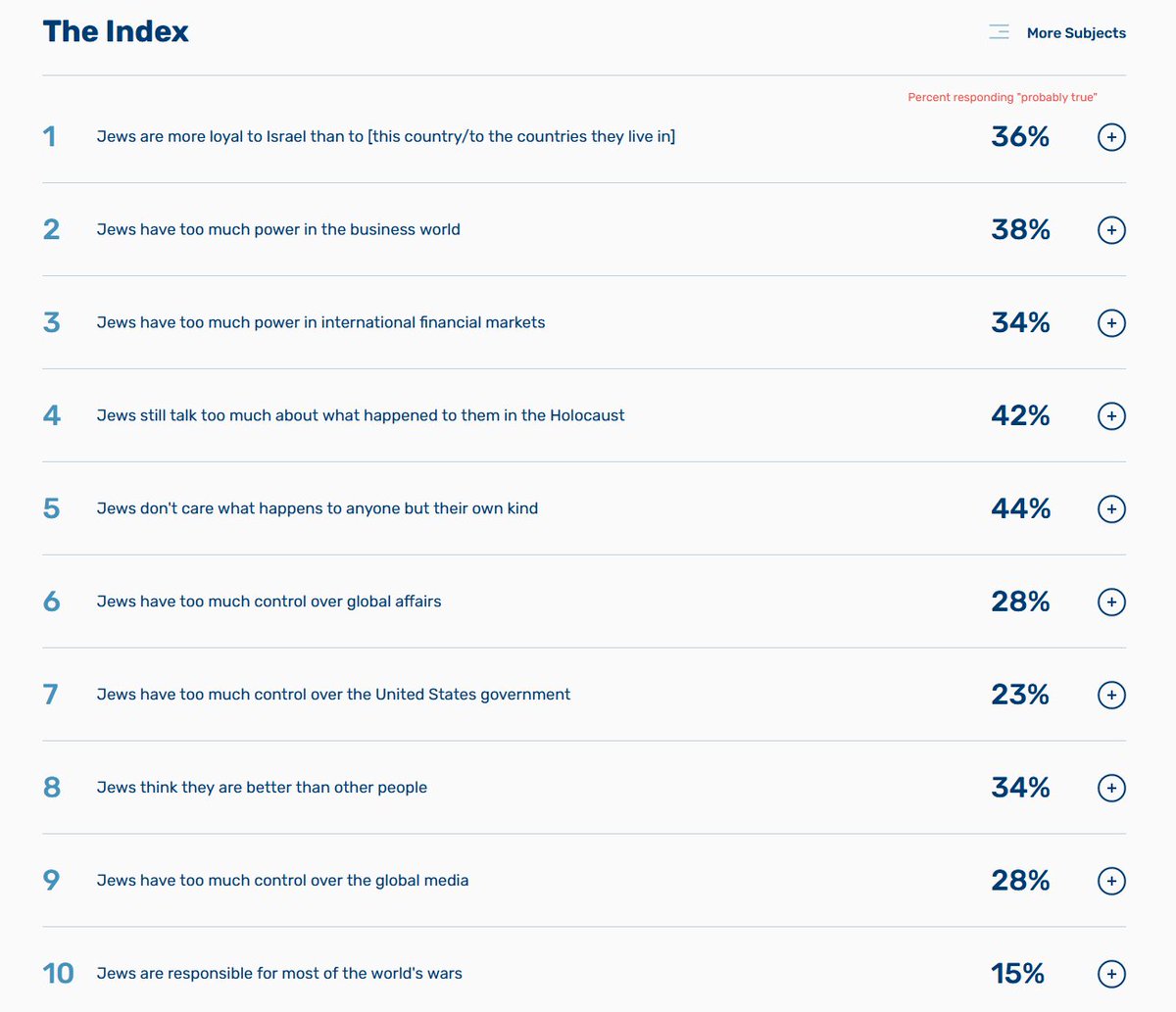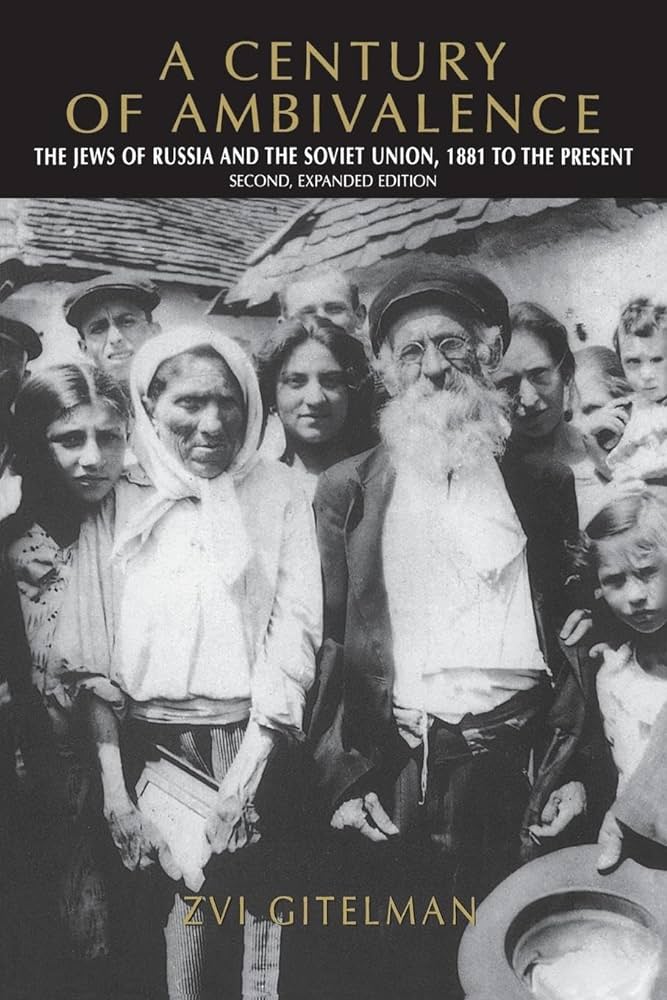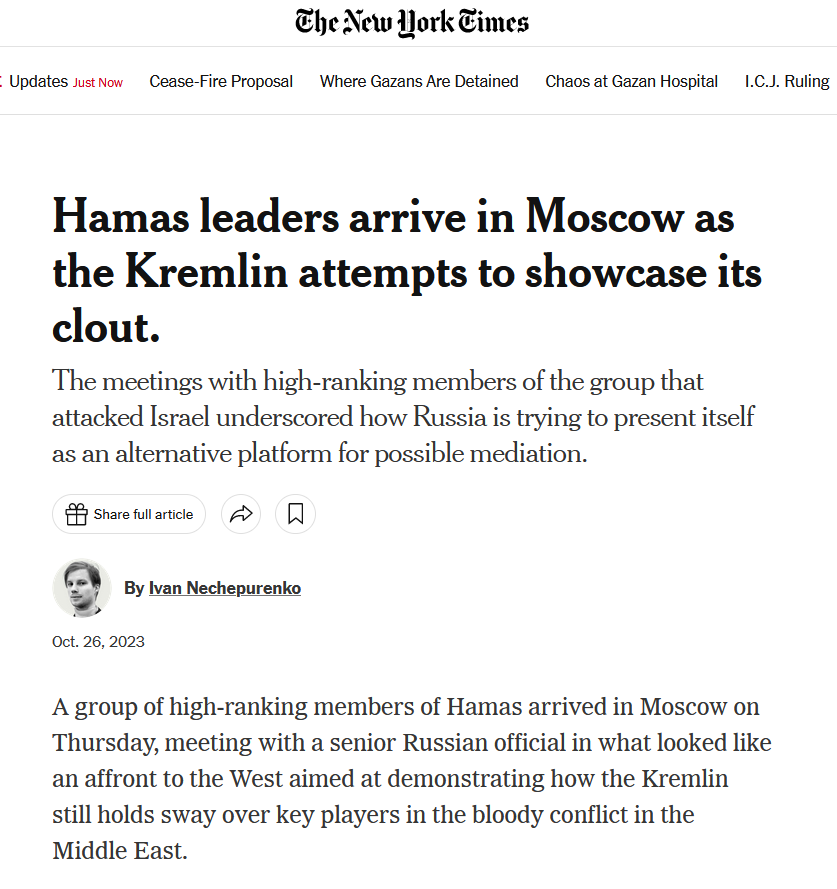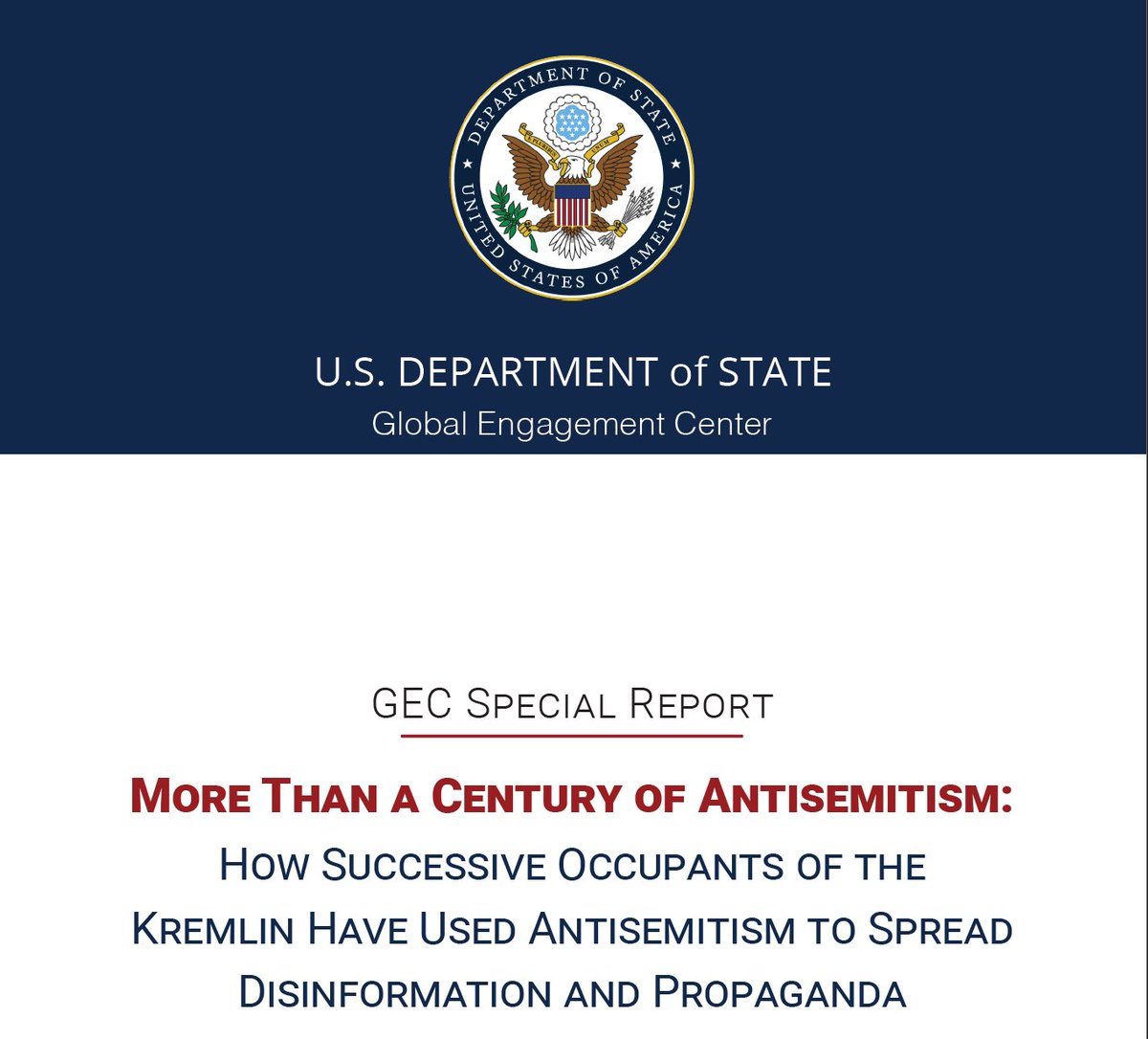In today’s #vatniksoup, I’ll discuss a specific propaganda/disinformation that the Kremlin likes to use – antisemitism. I also talk about how the Russian society itself has become riddled with antisemitism & how this has led to a decrease in Jewish population in the country.
1/19
1/19

Russian antisemitism works on many levels, and their narratives vary depending whether they’re targeting a local audience or people in Europe and the US. For example for the latter, Russia attempts to create a false narrative of Ukraine being an antisemitic “Nazi state”.
2/19
2/19

But before diving deeper, let’s look at a survey data of Russians in 2023: Nearly 30 million Russians harbour antisemitic attitudes, and 15% of those surveyed believed that “Jews were responsible for most of the world’s wars.” 38% think that the Jews have...
3/19


3/19


...“too much power in the business world”. There were around 2 million Jews in the USSR, approximately 880,000 of those were based in Russia. Half a million Jews had left the country by the time of its collapse, and by 2021, there were just 83,000 Jews remaining in Russia.
4/19



4/19



In 2018, Russian Levada Center noted that Russian Jews believed open antisemitism was falling in the country, but that it was artificially suppressed by the senior leadership openly pursuing a more pro-Israel position. They also felt that antisemitism…
5/19
5/19

…would become more open if Russia’s senior leadership changed its public position on Israel. After the Oct 2023 Hamas terrorist attack, the Kremlin did exactly this: they labelled Israel and the US as an aggressor instead, even welcoming Hamas leaders to visit Moscow.
6/19


6/19


After Oct 2023, Russia also had a surge in antisemitic attacks. For example, in Oct 2023, Russians attacked Jewish people at the Makhachkala airport. The pogrom was naturally later blamed on “foreign actors”, “miscreants” and - you guessed that right - Ukrainians.
7/19
7/19

All this didn’t go unnoticed in Israel – prominent politician and Likud member Amir Weitmann blamed Russia for supporting Hamas during an interview on RT, stating that “Russia will pay the price” for “supporting the enemies of Israel”.
8/19
8/19
But at the same time, the Kremlin is actively spreading age old antisemitic tropes and conspiracy theories of “Zionist globalist elites taking over the world”. These tropes and stories, like the Protocols of the Elders of the Zion and Golden Billion, originate from Russia.
9/19



9/19



After Feb 2022, Russia has tried to undermine Western aid to Ukraine by vilifying the Ukrainian leadership, and especially Zelenskyy. Several high-ranking Russian officials have portrayed Zelenskyy as an “inauthentic Jew”, and the whole invasion was justified with…
10/19
10/19

…the need to “denazify” Ukraine. Putin has called Zelenskyy “a disgrace to the Jewish people”, drunk Medvedev stated he’d “lost his Jewish identity”, and, when asked about Zelenskyy’s Jewish identity, Lavrov even stated that Hitler “had Jewish blood, too”.
11/19



11/19



Putin even went as far as attempting to diminish the Nazi role in the murder of Jews in Ukraine during the Holocaust, by claiming it was done by the Ukrainians and “Banderites”, and that “even the SS troops didn’t consider it [the mass killings] possible.”
12/19
12/19

In Russia, the “Zionists” have been vilified by the genocidal Russian philosopher, Alexander Dugin, who claimed that the Crocus Hall attacks could’ve been “Zionists’ revenge” for Russia’s position on Gaza, while urging his followers to look for “Mossad’s fingerprints”.
13/19
13/19

But long before that, Russia’s massive disinformation and hybrid operation machinery started spreading antisemitism online to sow unrest and polarize societies in the West. For example, the FSB-controlled SouthFront fake news blog has spread several antisemitic tropes.
14/19
14/19

In Europe, the Kremlin has complemented these narratives by conducting hybrid operations, such as the antisemitic graffiti campaign in France, further provoking online discussions on “European antisemitism”.
15/19


15/19


As we’ve seen, the conflict in the Middle-East has polarized even the pro-Kremlin bloc, and this type of division is ideal for any kind of online propaganda and disinformation campaign. Now, it’s worth mentioning that the conflict is very real and should be addressed,…
16/19
16/19

…but the Kremlin is cynically using this dire situation to do what they do best – spreading false narratives and half-truths, thus dividing societies, who instead of focusing on foreign policy issues like the war in Ukraine, resort to infighting.
17/19


17/19


It’s also worth mentioning,that not everything comes from the Kremlin spin doctors. First of all, Iran and the CCP are also very active in spreading disinformation with their massive troll and bot farms. Second,many of these narratives are created by conspiracy theorists,…
18/19


18/19


…which are then amplified by the troll & bot farms. We should also remember that people have real concerns for example over inflation, identity politics, antisemitism, and immigration in both Europe and in the US, and that Russia uses them cynically to polarize societies.
19/19




19/19




• • •
Missing some Tweet in this thread? You can try to
force a refresh


































